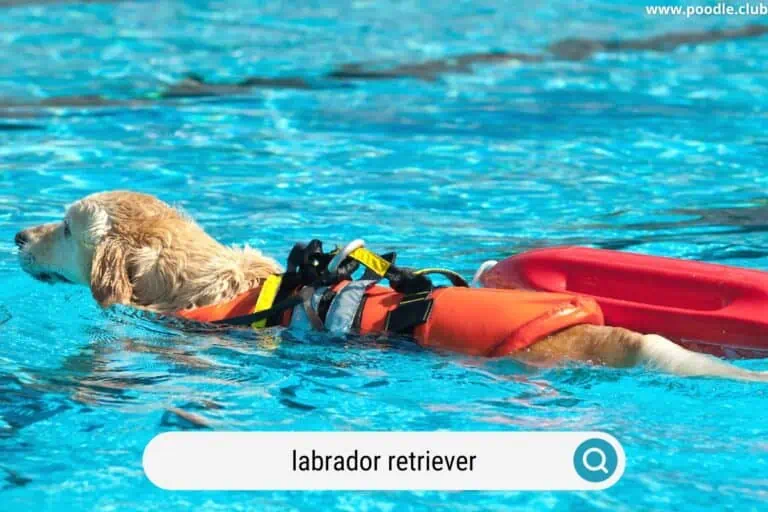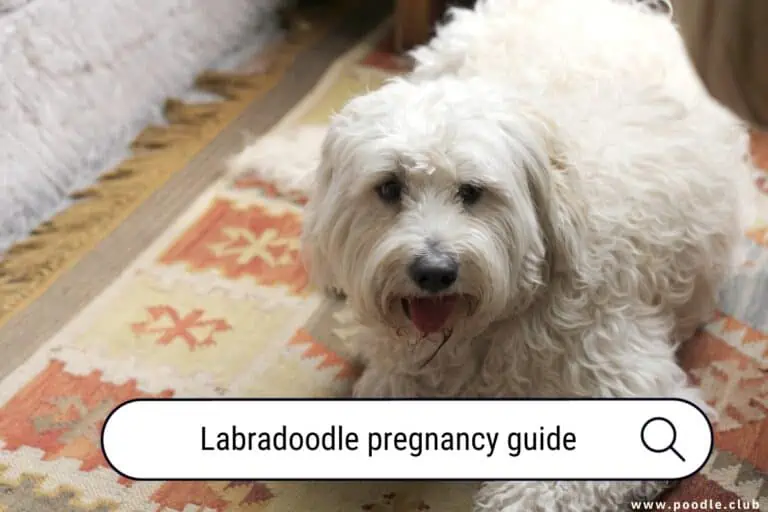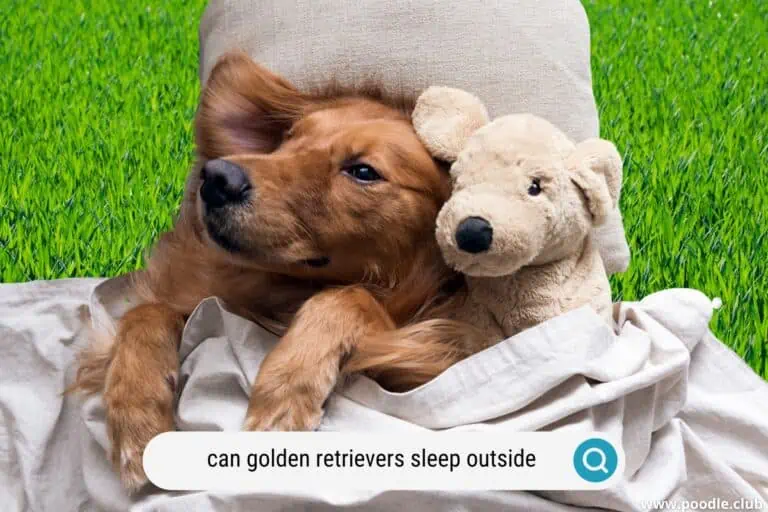Toy Poodle Pros and Cons: A Balanced Overview
Toy Poodles are a popular breed that many people adore for their intelligence and adaptability. These small dogs have a big personality, making them a perfect companion for those looking for a loving and loyal pet. Before deciding to adopt a Toy Poodle, it’s essential to consider the pros and cons associated with this breed to ensure they are the right fit for your lifestyle.
One of the significant advantages of Toy Poodles is their high intelligence and trainability. This trait makes them suitable for various activities such as agility, obedience, and even therapy work. Their small size also makes them excellent companions for apartment living or homes with limited space.
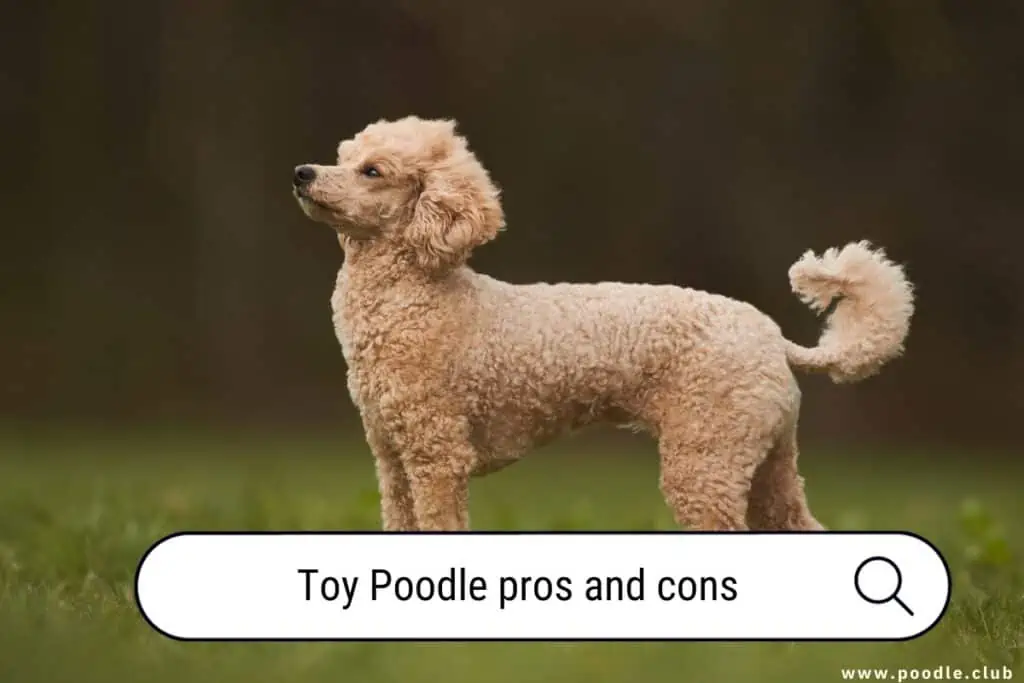
On the flip side, Toy Poodles can be prone to specific health issues, and their grooming requirements cannot be overlooked.
Ultimately, weighing the pros and cons of Toy Poodles will help potential owners make an informed decision. While their charming personality, intelligence, and adaptability may win many hearts, understanding their needs, potential health problems, and grooming requirements is vital for a harmonious relationship with your furry friend.
Toy Poodle Overview

Size and Appearance
Toy Poodles are the smallest of the three Poodle sizes, the other two being Standard and Miniature. These adorable dogs stand at approximately 10 inches tall at the shoulder. Their small size makes them an ideal choice for apartment living or for those who prefer a smaller canine companion.
Their coat is curly, dense, and comes in various colors such as white, black, apricot, and more. This type of coat requires regular grooming to keep it looking its best and to avoid matting. One notable advantage of their coat is that it is hypoallergenic, making Toy Poodles a great option for people with allergies!
Origin and History
Although often associated with France, the origins of the Poodle can be traced back to Germany. Their ancestors were water dogs, used for retrieving game from water bodies. The Poodle’s iconic haircut, often seen as a fancy adornment, actually had a practical purpose: it helped the dog stay buoyant while swimming and protected their vital organs from cold water.
PuppySpot is a reputable dog marketplace where you can browse and find compatible puppies right from the comfort of your home. They have placed over 200,000 puppies into homes in the US!
Toy Poodles were bred down from their larger Standard and Miniature counterparts, gaining popularity in France, where they became symbols of luxury and companions to royalty.
To sum it up, Toy Poodles are small, cute, and hypoallergenic dogs with a rich history dating back to Germany and France. Their size makes them perfect for apartment living, while their beautiful, curly coat adds to their charm. Just remember to keep that coat well-groomed, and you’ll have a wonderful little friend for life!
But no pressure, they won’t hold any royal grudges against you.
Why Choose a Toy Poodle?
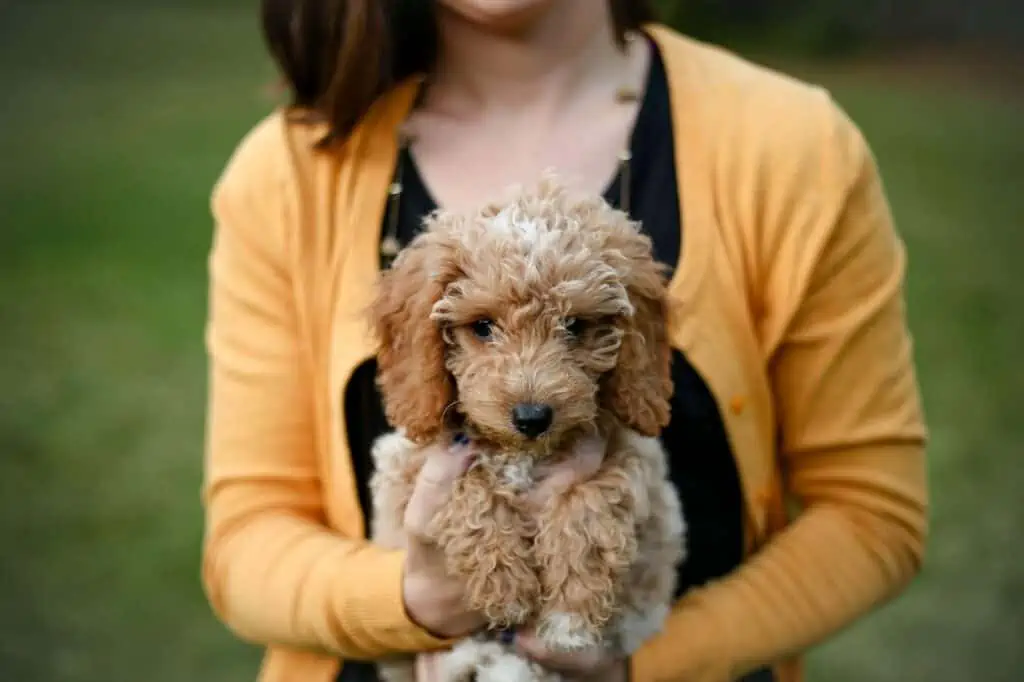
Intelligence and Trainability
Toy Poodles are known for their exceptional intelligence and trainability. These pint-sized pups rank among the top intelligent dog breeds, making training sessions a breeze. They excel in obedience and agility training, so if you’re looking for an athlete in a small package, a Toy Poodle is your go-to companion.
Their eager-to-please attitude combined with their smarts often leads to some entertaining moments. For instance, don’t be surprised if your Toy Poodle learns how to open doors, retrieve your slippers, or even do basic math! Who wouldn’t want a mini-genius as a pet?
Hypoallergenic Coat
One of the biggest pros of Toy Poodles is their hypoallergenic coat. If you’re prone to sneezing fits around pupper fur, look no further. Toy Poodles have a curly coat that produces minimal dander, which is a significant bonus for allergy sufferers.
It’s worth mentioning that their coat does require regular grooming to prevent matting, but the trade-off is a fluff-ball that won’t leave you reaching for the tissues.
Adaptability and Compatibility with Children
Toy Poodles adapt well to different living environments, making them suitable for both small apartments and spacious homes. They’re also excellent family pets that usually get along well with children, especially if introduced to kids at a young age.
Now, while Toy Poodles are generally good with small children, it’s essential to teach kids to handle these petite pups gently. Remember, they’re called “Toy” Poodles for a reason – they’re small and delicate, not action figures!
In conclusion, a Toy Poodle can offer a winning combination of intelligence, trainability, hypoallergenic coat, and adaptability. Along with their compatibility with children, these qualities make them a solid choice for those seeking a small, family-friendly, and low-allergen dog companion. After all, who wouldn’t want a smarty-pants pup with voluminous curls who’s always up for adventure?
Challenges of Owning a Toy Poodle
Toy Poodles are charming, intelligent, and great companions. However, they do come with their share of challenges. In this section, we’ll discuss the main challenges of owning a Toy Poodle, including grooming and coat maintenance, separation anxiety and sensitivity, and common health issues.
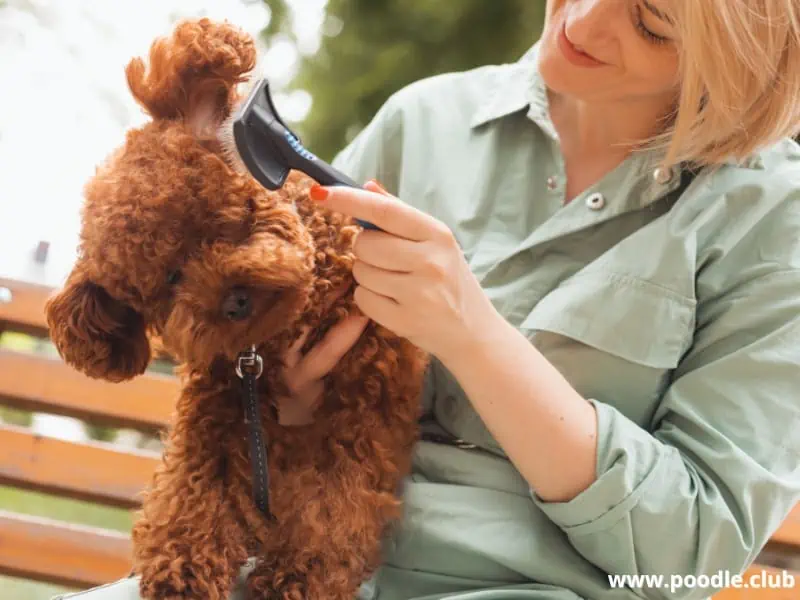
Grooming and Coat Maintenance
Unlike their relatives, the Standard Poodles, Toy Poodles don’t shed much, but that doesn’t mean they are low maintenance. In fact, their curly hair requires frequent grooming to avoid tangles and matting. Be prepared to regularly brush your Toy Poodle’s hair and schedule professional grooming sessions every 4-6 weeks, so that their coat remains clean and healthy.
Additionally, because Toy Poodles are prone to dental problems, good oral hygiene practices are crucial. Regular teeth brushing and dental cleanings will help maintain your pup’s toothy grin.
Separation Anxiety and Sensitivity
Toy Poodles are known for their sensitive personalities. They can become very attached to their owners, which might contribute to separation anxiety when they are left alone. For example, you might come home to find your little fur ball anxiously waiting by the door or discover they’ve tried rearranging your living room while you were away.
It’s essential to spend time training your Toy Poodle to cope with alone time and give them the necessary mental stimulation to keep their anxiety at bay.
Health Issues
All dogs are susceptible to certain health conditions, and Toy Poodles are no exception. Some of the common health issues that they face include Progressive Retinal Atrophy (PRA), Patellar Luxation, and Von Willebrand’s Disease.
PRA is an eye condition that might progressively lead to blindness, making regular preventive eye care important. Patellar Luxation, a knee joint issue, can cause discomfort and requires medical attention. Lastly, Von Willebrand’s Disease is a clotting disorder that might lead to excessive bleeding after injuries.
Being aware of these potential health problems and keeping up with regular veterinary check-ups will help ensure your Toy Poodle stays healthy and happy.
In summary, caring for a Toy Poodle comes with its unique set of challenges. Good grooming practices, attention to their emotional needs, and awareness of potential health issues are vital to ensure their well-being. Despite these challenges, Toy Poodles make wonderful companions and are well worth the time and effort you invest in their care.
Finding and Selecting a Toy Poodle
When it comes to finding and selecting a Toy Poodle, there are two primary routes you can take: choosing a breeder or adopting from a shelter or rescue. Whichever option you decide on, ensure you are well-informed and prepared for the journey of bringing a new furry friend into your life.

Choosing a Breeder
To find a reputable breeder for Toy Poodle puppies, start by consulting organizations like the American Kennel Club or The Poodle Club of America. These organizations can provide you with a list of breeders that adhere to specific standards and ethical practices.
When choosing a breeder, don’t just consider the price of the puppy. Take into account the breeder’s experience, reputation, the environment where the puppies are raised, and whether they complete health tests before selling. You might be able to save some money by going to a less reputable breeder, but you could be sacrificing your future pup’s health and temperament in the process.
Adopting from a Shelter or Rescue
If you prefer to give a deserving dog a second chance, consider adopting a Toy Poodle from a shelter or rescue. Many Toy Poodles end up in shelters and rescue organizations due to circumstances beyond their control, like family moves or situations that make it hard to care for a pet.
To find shelters and rescues with Toy Poodles, check the local listings in your area or search online for organizations that cater specifically to this breed. Keep in mind that the dog’s age or temperament might require extra patience and knowledge on your part, but the payoff is a loving companion with a new lease on life.
In conclusion, finding and selecting a Toy Poodle—whether from a breeder or a shelter or rescue—requires research, patience, and commitment. By being well-informed and responsible, you’ll make the right choice for both you and your future four-legged friend.
Training and Socializing Your Toy Poodle
Toy Poodles are intelligent dogs that respond well to training and socializing. Let’s dive into some tips and tricks for effectively raising a happy and well-balanced Toy Poodle.
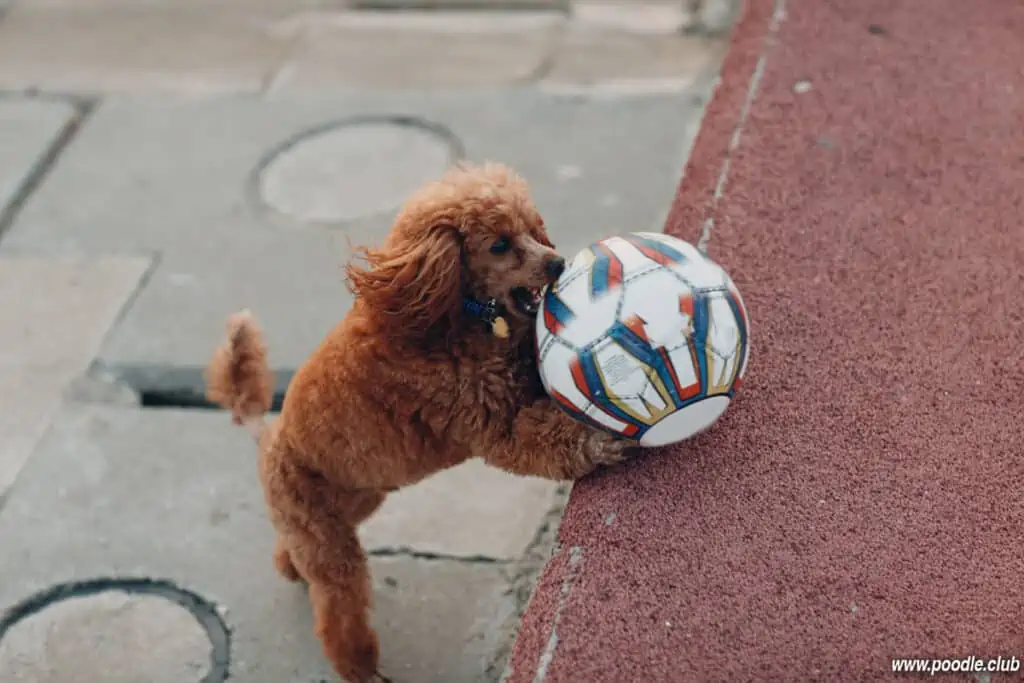
Establishing Routines
Consistency is key when training your Toy Poodle. Establishing a daily routine, such as consistent feeding times, regular grooming, and designated playtimes, will help your dog feel secure and confident. Be sure to include daily walks for mental stimulation and exercise.
A consistent routine will also help curb any unwanted behavioral problems and promote overall well-being.
Just like your morning coffee, your Toy Poodle will appreciate knowing what to expect each day. This can help them avoid anxiety and develop a strong bond with you.
Building Confidence
To boost your Toy Poodle’s confidence, it’s important to expose them to various stimuli early on, including different people, environments, and sounds. This process, known as socialization, is crucial for their mental health and ability to interact appropriately with humans and other animals. Start by inviting different friends, both human and canine, to interact with your Toy Poodle.
To keep it fun and engaging, think of socialization as a game, like “Simon Says” or “Red Light, Green Light.” This way, your pup will be excited to meet new friends and explore new places, instead of dreading it.
Avoiding Fear
Fear can be a major issue for Toy Poodles if not addressed early during their socialization period. As watchdogs, they can be prone to barking at unfamiliar people or animals. To help your Toy Poodle overcome fear, gradually expose them to new experiences in a controlled, positive manner.
For instance, when introducing a new object that might scare them, like a vacuum cleaner, start by letting them see and sniff it from afar when turned off. Gradually move the object closer and turn it on, while rewarding your Toy Poodle with treats and praise. This will help create positive associations with potentially frightening things.
In summary, training and socializing your Toy Poodle are essential components in raising a well-mannered, confident, and happy dog. Establish consistent routines early on, focus on building their confidence through social interaction, and take steps to avoid fear. With such a witty and affectionate breed, you’re sure to have a fun and exciting journey raising your Toy Poodle!
Toy Poodle Fun Facts
Toy Poodles are known for being one of the smartest dog breeds, ranking closely behind Border Collies and German Shepherds in intelligence and trainability. While they aren’t the official national dog, they certainly have a following among dog lovers!

When it comes to their appearance, Toy Poodles can sport various clips – from the classic “puppy cut” to the extravagant “Continental” or “English Saddle” clip often seen in dog shows. But don’t let those fancy hairdos fool you; these little dogs aren’t just about looks! They’re descendants of European retrievers used for hunting, so they have an innate knack for fetching both toys and affection.
Speaking of affection, Toy Poodles are extremely affectionate and sociable pets. They form strong bonds with their family members and are known for their loving temperaments. A Toy Poodle will often follow its owner from room to room, always eager to be involved in whatever is happening.
Although they are small and might appear delicate, Toy Poodles are surprisingly sturdy and athletic for their size. They enjoy daily walks, playtime, and even agility courses! Despite their size, these little dogs are self-confident and often carry themselves with a sense of pride.
In terms of colors, Toy Poodles come in many shades, including white and black, as well as apricot, red, silver, and even parti-colors (a combination of two or more colors). This diverse color palette adds to their appeal, as there’s a Toy Poodle suitable for everyone’s taste.
So remember, a Toy Poodle is more than just a pretty face – they’re an intelligent, affectionate, and versatile companion who will add plenty of entertainment and love to your life. Plus, with their low-shedding, hypoallergenic hair, they’re great for allergy sufferers, too! Smarts, beauty, and allergy-friendliness?
That’s a pretty unbeatable combination!


![Are Poodles Protective of Their Owners? [Loyalty]](https://poodle.club/wp-content/uploads/2023/05/are-poodles-protective-of-their-owners-768x512.webp)
